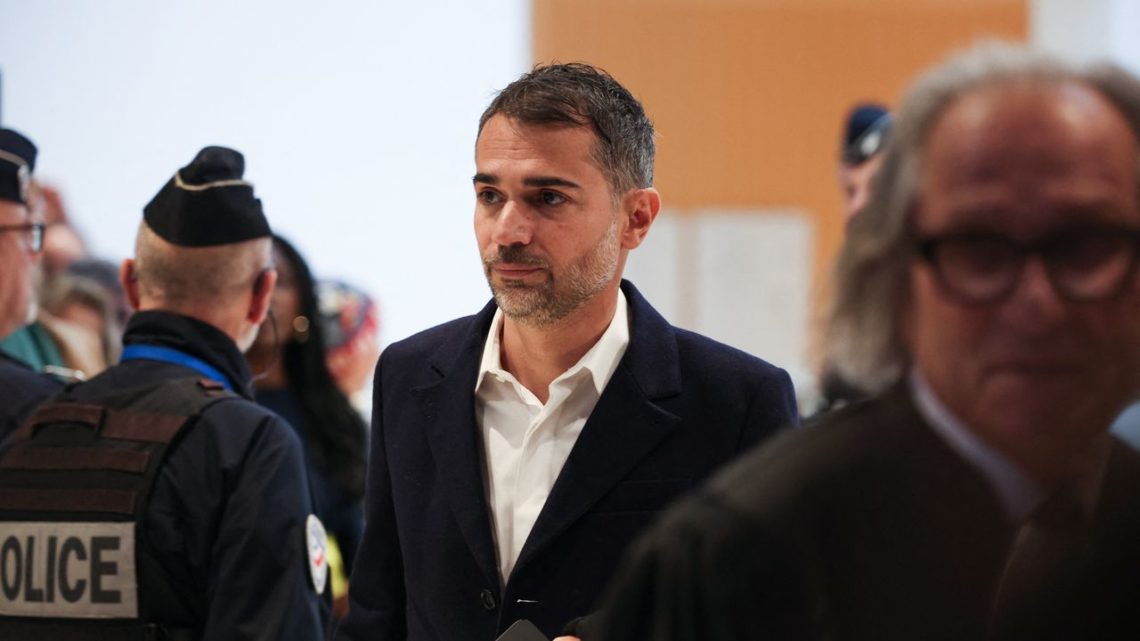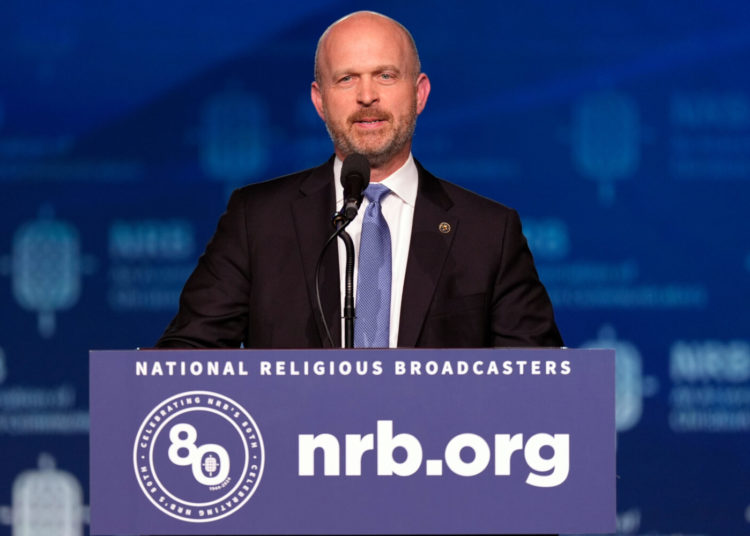“If you had Madame Macron in front of you, would you have told her about his cock?”
On the witness stand, Jérôme A. was silent. Perhaps he “wouldn’t have made jokes in front of” Brigitte Macron, the first lady of France, if she had been standing right before him. But “it all depends on the context and the moment,” he stammered.
The 49-year-old IT specialist was among the 10 defendants, aged between 41 and 65, for whom prosecutors requested suspended prison sentences, ranging from 3 to 12 months, after they were charged and tried for cyberstalking the first lady. In the Paris criminal court on Monday and Tuesday, they were accused of having published or relayed on social networks jokes, insults, photomontages, and other caricatures claiming that Brigitte Macron was a man. Ahead of the verdict, expected on January 5, 2026, most of them pleaded that they had a right to humor, satire, and impertinence, while others outright evoked the “Charlie Hebdo spirit.”
The defendants’ tweets compared Macron to an “old tranny” and “a first lady boy” “who wears size 47 shoes.” Jérôme A., for his part, wrote: “An ultra minority of weirdos have taken power in Paris. Who doubts Brigitte’s cock?”
When confronted on the stand with tweets that he considered harmless, the defendant tried to play down the significance of his comments. Since 2022, he has published more than 36,000 tweets in total, an average of 30 per day; not all have been about Macron. “I’m accused of nine tweets spaced over four months,” he pointed out, as if surprised to find himself in court for so little. Why, in the flood of vulgar, insulting comments on the internet, did the law take an interest in him? “I wonder what I’m doing here,” he complained. “Today, you can send people to police custody for a few harmless tweets, end up in cells that smell of piss, be summoned for several days in Paris. It’s frightening.”
Most of the defendants are internet users without outsize influence who don’t see the point of this cyberstalking trial. “Madame Macron has a certain notoriety,” recalled Jean-Christophe P., a 65-year-old property manager. “I’m just one person among many. I don’t think I’m part of any harassment.” He called the first lady a “degenerate pedo-satanist slut” and a “shitty tranny.”
They were shameful remarks when quoted by the presiding judge. But for Jean-Luc M., they were merely “jokes” or “quips.”
“We didn’t address her directly. So it’s not harassment, at least not directly,” the defendant said.
Jérôme C., a 55-year-old credit broker, wrote this refined joke: “Tomorrow, Emmanuel Macron is organizing a ‘who has the biggest… well, you know’ contest at the Élysée Palace: his wife insisted on participating.” In court, he was among the few to make a mea culpa: “I’m sorry to be here. I’m sorry I was a bit heavy-handed and not necessarily funny. Maybe I’m funnier in private.”
While the defendants run the gamut—there are company directors, elected representatives, gallery owners, teachers, psychics—what they all have in common is that they are immersed in a conspiratorial ecosystem. And all of them say they are disturbed by, or even indignant about, the age difference between Brigitte and Emmanuel Macron, with some going so far as to use the expression “14-39” to refer to the presidential couple—a reference to the ages at which the current president and his wife first met.
In all this mishmash, three defendants have emerged as instigators, in the words of the prosecutor. First, there’s 41-year-old Aurélien Poirson-Atlan, better known as Zoé Sagan on Facebook and X. For years, he was one of the most important vectors of the Brigitte Macron rumor mill—though he insists he was merely repeating “investigations” by “independent journalists.”
“I was just highlighting social gossip, what was being said at dinner parties. It’s been done for centuries,” he said in court, trying to put things into perspective. He also qualified the impact his comments could have on the first lady’s life: “I see Brigitte at all the Dior shows, at Fashion Week. I don’t feel that my tweets have really changed her life.”
In court, he presented himself well, but gave a totally disjointed speech marked by intensive name-dropping. In less than five minutes, we went from Harvey Weinstein to Gustave Flaubert, from Louis Jublin (Gabriel Attal’s former communications adviser) to Romain Gary, who is said to have inspired him to launch the Zoé Sagan account. During his testimony, we started looking at the gallery benches, where many of the defendants’ supporters were seated. Even they were frowning.
Then there’s Delphine J., also known as Amandine Roy, a 51-year-old psychic who helped spread the rumor—notably through a four-hour video in which she interviewed Natacha Rey, an “independent journalist” who was the first to popularize doubt about the first lady’s gender. In court, she declined to comment on the substance of the case. She only spoke when asked about herself, explaining that, in addition to her work as a medium, she manages a “healing Virgin statue” that improves people’s health. “We’ve already had two miracles,” she said, “so I feel responsible for making it accessible.”
Then there’s Bertrand Scholler, a Parisian and pro-Russian gallery owner followed by more than 100,000 people on X. He, too, is a self-proclaimed “citizen journalist,” and was roundly applauded by members of the gallery as he took the stand. He took advantage of the moment to hold a political debate, beginning with an evocation of the First Amendment to the US Constitution and ending with a comparison between Brigitte Macron’s photomontages and Marcel Duchamp’s hijacking of the Mona Lisa in a work titled L.H.O.O.Q.—a bawdy pun. (Say it out loud, pronouncing the letters in French, and it sounds like “Elle a chaud au cul.” Rough translation: “She has a hot ass.”)
In between, he wondered why the rumors have persisted for so long. “You can’t stop a controversy by locking people up,” he said indignantly. “When you have a team of communicators and professionals…I don’t know. I’d find it easy to stop a controversy.”
That’s the trouble with this conspiracy talk. Should the victims of it denounce it or let it go? Should Brigitte Macron have “shown proof” of her sex, as a number of defendants demanded? For years, the first lady refused to react. Now she seems to be opting for a more offensive strategy, fighting a rumor that is more than seven years old. The fake news took on a whole new dimension when, in March 2024, pro-Trump influencer Candace Owens began spreading the rumor across the Atlantic. The 36-year-old American went so far as to pronounce it “the biggest political scandal in human history.” (The Macrons have sued Owens for defamation over the claims; Owens’s lawyers have moved to have the suit dismissed.)
That’s why Macron’s daughter, Tiphaine Auzière, also came to testify before the criminal court. “I wanted to talk about what her life has been like since these attacks began,” she said. “I’ve seen a change, a deterioration in the way her life works.”
Since the vicious online attacks began, Macron has been “forced to be careful with outfits and postures, because she knows that her image can be hijacked.” To hear her daughter tell it, Brigitte Macron has learned to live with this new reality. But “she can’t ignore all the horrors she hears about herself,” Auzière said. The attacks have had repercussions on her family, and particularly on her grandchildren, who hear in the playground: “Your grandmother is your grandfather.”
After Auzière, a man took the stand. He spent 10 minutes denouncing the “forced marriage” of Brigitte and Emmanuel Macron before asking to become a civil party in the case, claiming a symbolic one euro from the defendants for not going far enough in “denouncing corruption.” After verification, it turns out that this man, a figure associated with the grassroots yellow vests protests, was placed in seventh position on far-right French comedian Dieudonné and yellow vest supporter Francis Lalanne’s list for the 2024 European elections.
During his deposition, Poirson-Atlan had explained how Twitter was “a form of contemporary bistro.” During the trial, we often wondered whether the bistro had moved into a courtroom.
Original story in VF France.
The post 10 French Trolls Are Tried for Cyberbullying Brigitte Macron—and They’re Mostly Not Sorry appeared first on Vanity Fair.




